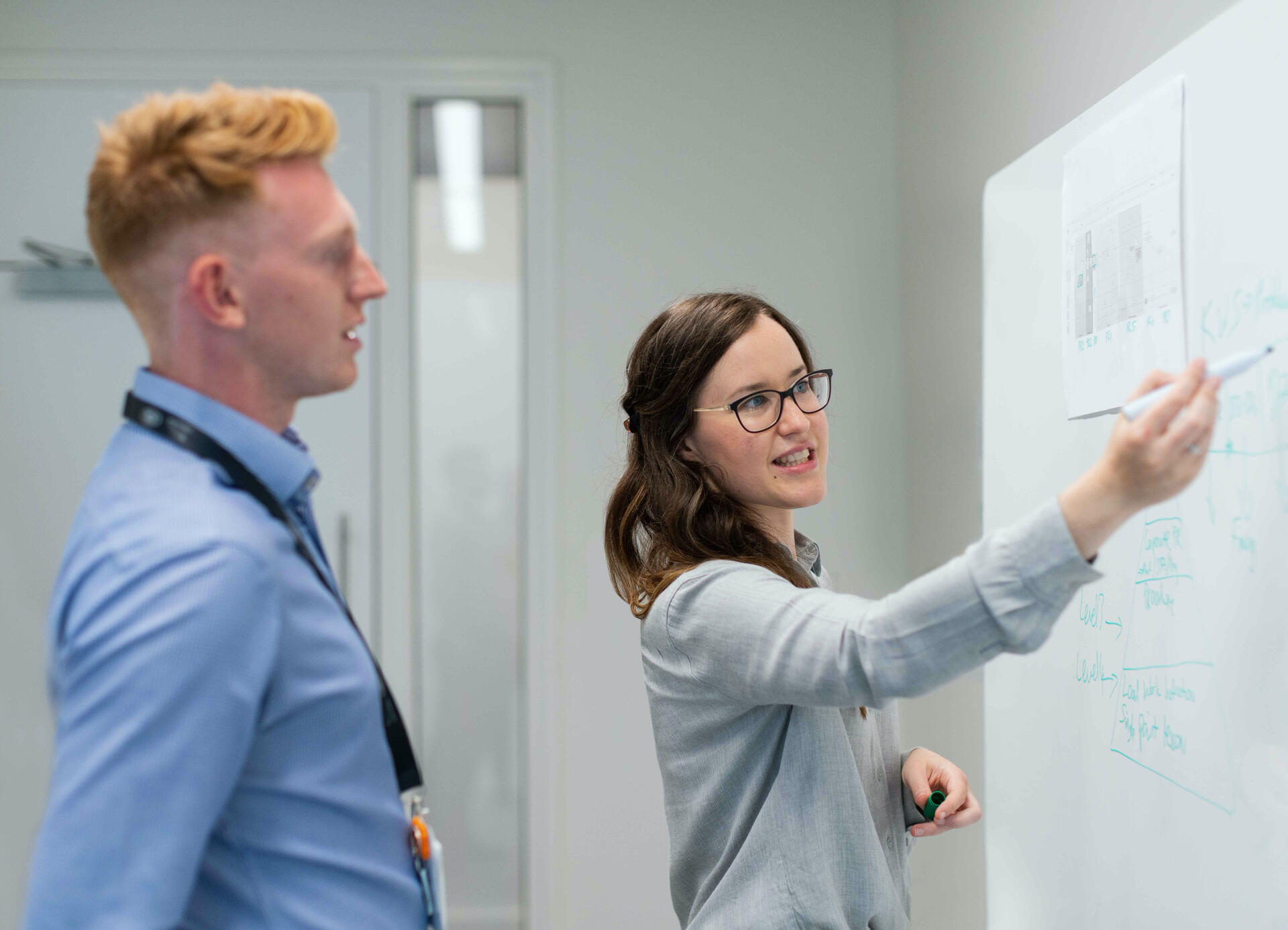
Nick Frollini
Educator. Operational leader. Dog dad.
Background
I'm a member of the faculty in the Software and Societal Systems Department in Carnegie Mellon University's School of Computer Science where I teach software engineers to communicate more effectively — so that they can become powerful agents of change within their organizations.I also dabble in mentoring early-stage companies and (occasionally) in film production and political activism, although not necessarily in that order...
Background

I'm a member of the core faculty of Carnegie Mellon University’s Master of Software Engineering (MSE) program, which lives in the Software and Societal Systems Department (S3D) in the School of Computer Science, where I direct communications and leadership education.Prior to joining the MSE faculty in 2021, I spent more than 14 years as the Deputy Director of the Institute for Software Research (now known as S3D) where I was responsible for managing the full range of business operations within the department. Prior to that, I served as the Assistant Vice President for Technology Transfer at Case Western Reserve University in Cleveland, Ohio, managing commercialization and licensing activities within that institution’s School of Engineering and its College of Arts and Sciences. At Case, I also served as Managing Director of Case Technology Ventures, a $5MM pre-seed stage venture capital fund, and held an adjunct faculty appointment at that institution's Weatherhead School of Management where I taught a two-semester course sequence in entrepreneurship. Before entering academia in 2001, I cut my teeth in private equity and investment banking after a stint in the technology consulting industry (where we realized, very quickly, that paying me to write code was a very, very, very bad idea...)I am incredibly passionate about the value and power of communications, presentation, and negotiation skills – and I work to leverage my experiences in those areas in the classroom.I hold a degree in Industrial Management from Carnegie Mellon’s Tepper School of Business.I'm an incredibly proud dog dad (that's Malcolm pictured above), an active member of my community’s planning commission, and dabble in independent film production and video editing.
Communications for Software Leaders I & II
17-603 & 17-604

Communications skills are fundamental to professionals in all fields, from architecture to software engineering to zoology, because they enable the exchange of ideas and the completion of organizational goals. The ability to identify an audience, to develop clear, persuasive presentations and written documents, and to handle the complex interactions that occur in the workplace make the difference between those who participate in an organization and those who lead it.This is a two-semester sequence designed to help students build and refine their skills so that they can communicate as a leader in their professional work. Through a combination of in-class exercises, case studies, projects, presentations, and written assignments, students assess their current skill level and build upon it.This sequence is offered each academic year starting in the fall semester.You may review recent syllabi for these courses here:
Negotiations for Software Leaders
17-693

Negotiation skills are fundamental to professionals in all fields. Indeed, a strong argument can be made that almost every interaction that humans engage in is a negotiation in one form or another. This can be particularly important in technology-related industries and positions, where individuals may find themselves negotiating a job offer, attempting to convince upper management to back a new product or project, or trying to agree on deal terms for a corporate merger or a venture capital investment. The ability to identify your goals and alternatives, to effectively engage with a negotiating partner, and to define and achieve a positive outcome is critical to success in these and numerous other endeavors — and those who excel at handling these kinds of complex and often nuanced interactions will achieve greater success for themselves and their organizations.This course provides practical, hands-on training in the art and theory of negotiation. Unlike a traditional, lecture-based course, the bulk of student learning in this class comes from engaging in numerous in-class and out-of-class negotiation simulations with peers. Students learn which strategies will help them to be successful and which approaches will lead to failure. These simulations are supported by extensive readings and video lectures along with a number of additional reflective assignments and a final paper.This course is generally offered each summer semester (either during the first or second session). Starting in summer 2024, the course will now periodically be offered in an online-only format.A recent syllabus for the course can be viewed here:


